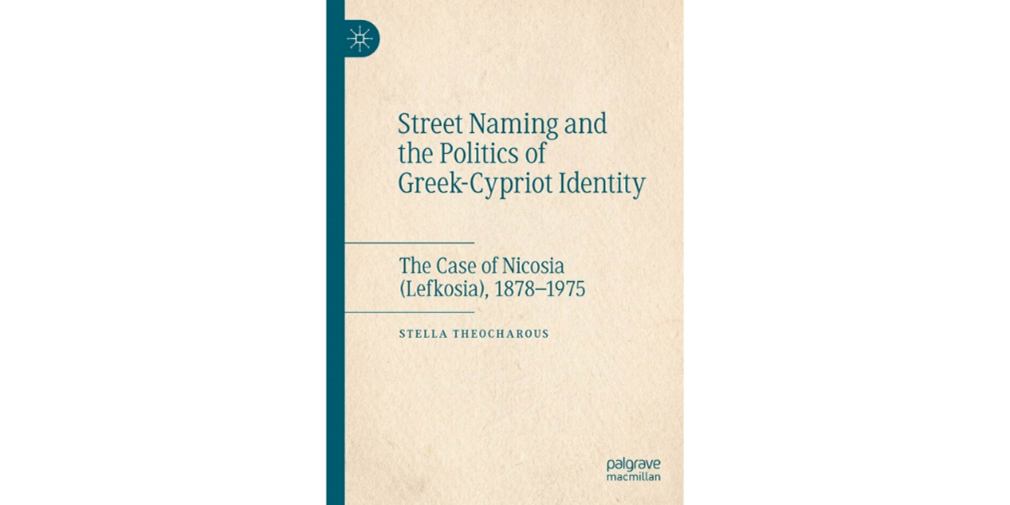The “Heraclitus” Center for Social Research and Regional Development at the Cyprus University of Technology announces the publication of Postdoctoral Research Fellow Stella Theocharous’ book titled “Street Naming and the Politics of Greek-Cypriot Identity, The Case of Nicosia (Lefkosia), 1878-1975” by Palgrave Macmillan.
The book represents the first explication of the role of street naming in shaping Greek Cypriot identity in Nicosia’s urban space. Through extensive archival research, the book records the (re)naming of the streets of Nicosia, underscoring the effort of the two communities to inscribe their national identity on space in an effort to delimit their symbolic and territorial sovereignty. Moving beyond the superficial treatment of toponymy as a linguistic means of special orientation, the research approaches toponymy as a contested practise, involving common symbols and representations that reflect the official history and collective identity as part of a political process.
Far from a neutral process, street naming encapsulates an ideology, history, culture, and, ultimately, identity. Utilising street naming to pay homage not only contributes to a historical repository of public memory but also represents a valuable tool of propaganda and diplomacy for the ruling class. The remembrance of persons or events via street naming introduces these names into the daily life of the city and simultaneously recreates the official narrative and history. While one may be unaware of the history behind a particular street name or the context in which the name was assigned, we must remember that street names are the product of struggle in political, economic, cultural and social arenas to achieve collective aspirations.
The book documents the efforts over almost a century to impose a “geography of oblivion” aimed to strengthen one’s national identity and banish the “other” from space both symbolically and literally, hence achieving geographical and political legitimacy. It represents a step towards a global perspective on the critical study of street naming, contributing to and expanding the knowledge of the political dynamics it entails. Through its commemorative capacity, street naming belongs to the politics of public memory and identity.
From the back cover of the book
“Through a rich account of the conflictual process of naming Nicosia’s streets during the 20th century, this book illuminates the establishment and consolidation of opposing nationalisms in Cyprus from a different angle. Theocharous’ research contributes new, significant empirical knowledge on the symbolic practises within the politics of the ethnic conflict in Cyprus and constitutes a valuable addition to the literatures of ethnic conflict and urban space, the politics of identity and Cyprus studies”
Dr Gregoris Ioannou
Manchester Metropolitan University, UK
https://link.springer.com/book/10.1007/978-3-031-54415-6
Source: Cyprus University of Technology | News and Announcements (https://shorturl.at/vegRw)
